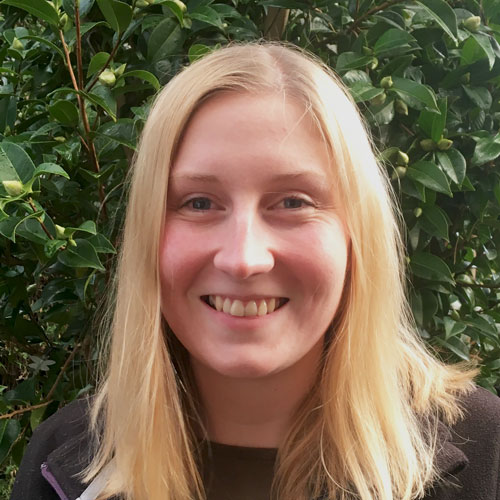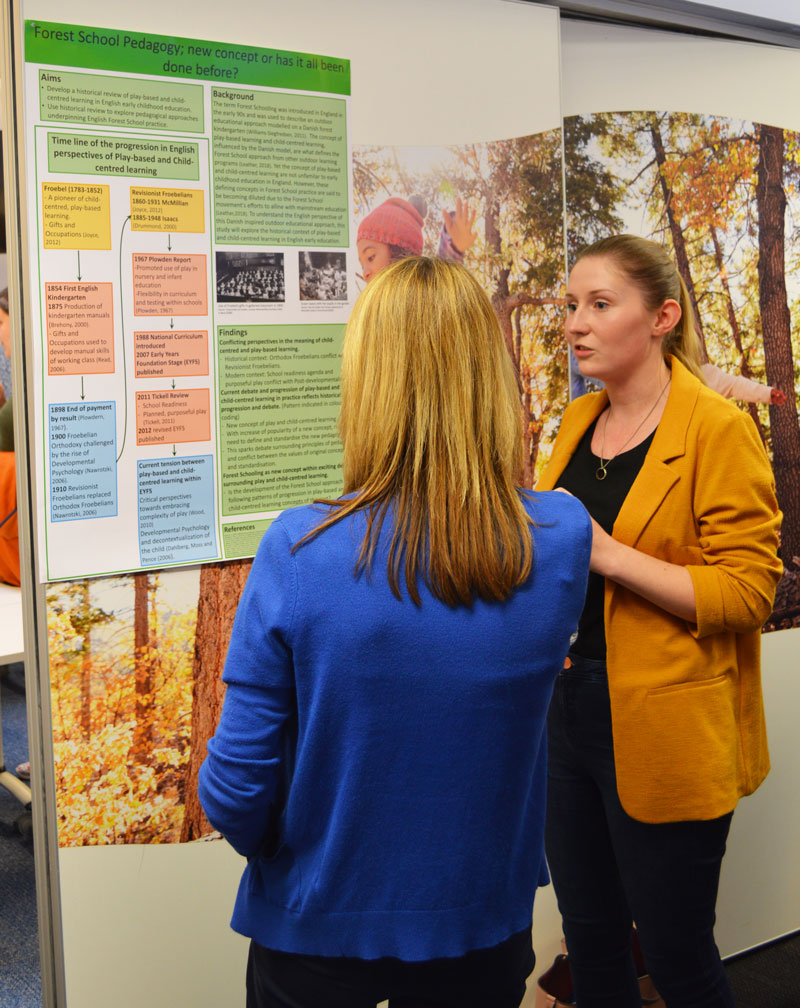
Hayley Bullard
Postgraduate Researcher, HudCRES
Forest Schooling is an educational approach based on child-led, play-based learning within a natural environmentI became interested in the Forest School movement as I was lucky enough to spend three weeks work experience in a Swedish forest school.
In Sweden, I was amazed to see children playing in open woodlands out of sight of practitioners, children taking charge of their risks and practitioners given them space to explore their inquisitive natures.
Observing the independence of the Swedish children changed my perspective of young children.
During my time at university, I felt drawn towards the English Forest School approach and developed my passion for the movement. After my studies, I worked as an early years practitioner implementing Forest School inspired principles. I felt frustrated with my experience in England as I found I spent more time encouraging children to measure the perimeters of flower beds instead of learning through play and having to explain to children that we couldn’t climb the trees as it was ‘too dangerous’. The reality of Forest School practice seemed to jar with the concept of the approach that I had explored throughout my studies.
To my relief, it did not seem it was just me that had felt this way. New research was emerging which encouraged others to think more critically about the approach. I was inspired by Leather’s (2018) article A critique of ‘Forest School’ or something lost in translation. Leather introduces Forest Schooling as a Scandinavian inspired approach yet highlights issues around importing an educational philosophy to the UK and calls for more discussion around Forest School pedagogy.
My research aims to contribute to the discussion of Forest School pedagogy and practitioner perspectives of implementing the approach.
My first step was to develop an understanding of the English perspective of this Scandinavian inspired approach. I began to explore the Forest School principles of child-led and play-based learning within a historical context of English early years education. I presented this work at the annual School of Education and Professional Development Research Conference. Forest schools poster Hayley Bullard 2019

During this process, I noticed patterns in how the Kindergarten movement in Victorian England developed being reflected in the current development of the Forest School approach. The Kindergarten movement was influenced by Froebel, a German educationalist, who was a pioneer in child-centred learning and play. As the English Kindergarten movement’s popularity grew, Froebel’s principles were misinterpreted and morphed to suit educational aims of the time (Free Play with Froebel: Use and Abuse of Progressive Pedagogy in London’s Infant School, 1870-1904, Read, 2006). This relates to recent research highlighting concerns of Forest School principles becoming diluted due to the movement’s alignment with mainstream schooling (Comparing apples and pears?: a conceptual framework for understanding forms of outdoor learning through comparison of English Forest Schools and Danish udeskole, Waite, Bolling and Bentsen, 2015). My research explores whether reconnecting Forest School with its’ Scandinavian influences could prevent the movement from falling down the same rabbit holes that led to the demise of Kindergarten movement.
For me, the best part of being a postgraduate researcher is conducting fieldwork.
My research is in its early stages of development and I plan to present my progress so far at the University of Huddersfield annual PGR Conference in May 2020.
If you are interested in undertaking postgraduate research, find out more here.

